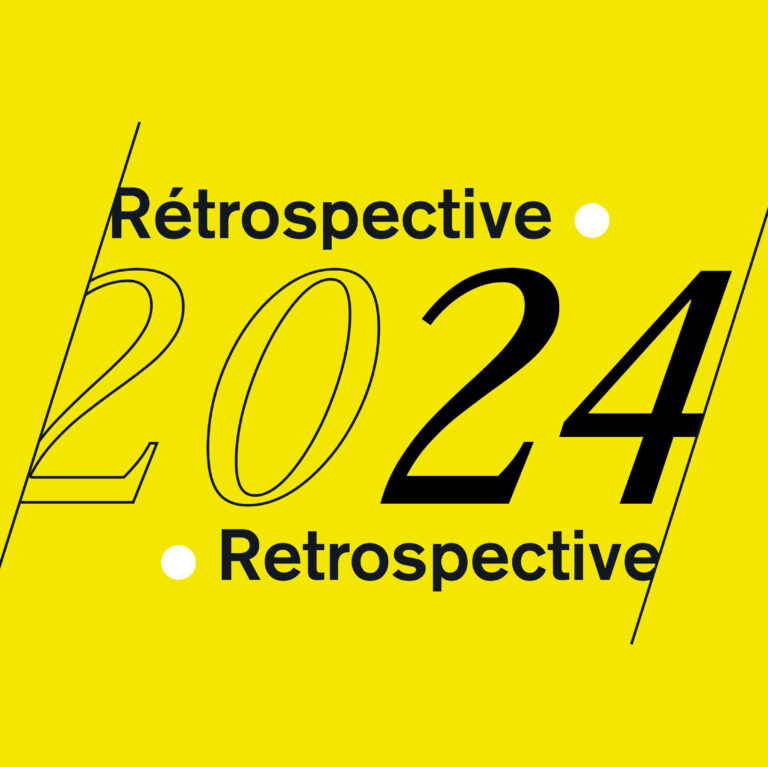Holding my plate, I spotted a participant eating alone. “Thanks for saving me a seat”, I said as I sat with him. As we engaged in a lively conversation about online groceries, what’s recyclable and, of course, our jobs and the conference, four people sat next to us looking either at their phone or their computer.
All the talks from Eyeo Festival 2018 will be available online. Why come here and not engage?
This is a tech conference unlike many others as questions of ethics, bias, inclusion and impact are brought up in a large proportion of sessions (one exception that stood out for me was that of David Ha on neural networks).
Setting the tone, Manoush Zomorodi’s keynote shed a light on the ways technology can worsen or enable our worst human traits. Our mobile phones can turn into time-suck and not surprisingly her projects found a segment of the population with an appetite for relief. One could sense agreement in the crowd, but maybe it was guilt.
Eyeo is a special moment in time. It’s one of the most hyped conferences in several fields and it sells out quickly. Yet, so many of us stand in the middle of this rare mix of people, looking at our phones. Having conversations with people at home. Keeping strangers at a safe distance on Twitter. Watching or interacting mildly with acquaintances on Facebook. Plunging back into work on Slack, as if our brains didn’t remain there afterwards.
I asked one participant what she thought of the previous talk that we had both attended: “I zoned out. I was thinking about work…” she confessed.
As with the joke about the aliens, confused about who’s the master between the dog or the human picking up the poop, an observer could wonder who’s in control: technology or the user.
The irony of course is that that power was the underlying question of so many talks: Who holds the power in tech? How is it yielded? To the benefit of who?
Jane Friedhoff turned the power fantasies on their head in her games, defining the audience not as a benevolent majority gracefully willing to empathize, but as the members of the opressed group that needs catharsis. To redistribute power, Matt Mitchell teaches cryptography to African American populations accustomed to be monitored. Meredith Whittaker conveyed a sense of urgency about the biases in the data we feed to our new overlords of artificial intelligence.
In the description of their talk, Dynamicland lay it plainly: “Increasingly, working on a computer isolates us more than it connects us”. But it doesn’t have to be like this, so they take the technology out of the computers and into the real world. No more screens: let the humans share the space with technology. And it works.
The Eyeo organizers have gone to great lengths to make the experience of attending more real and less virtual. The workshops on Monday were very interactive, forcing the participants to get to know one another from the beginning. The delightful personalized button designed by Giorgia Lupi based on our answers to a survey were playful conversation starters. The program of the conference printed on the back of our name tags gave us one less excuse to pull out our phones to check the schedule and then slip into email or social media.
The Eyeo app created a private space for the participants to connect, away from the chaos of Twitter. There was no live-tweeting function, thank goodness, so the speakers were given the full 45 minutes to communicate one on one with each member of their audience before we have our opinions distracted and shaped by the perceptions of others. Both sides deserved this time.
The app was also the place to organize meetups of people with shared interests, to find the show and tell sessions of the participants, or to organize spontaneous dinner plans. All ways to ricochet on the virtual and back into the real world.
Efforts to reach out to strangers were richly rewarded. I was energized by the enthusiasm of Hannah for data visualization, seemingly unaware of her talent as we discussed her recent piece. How can I not be short on time when discussing with Kim, an architect who now teaches board game design? It was exciting to see the possibilities in Jamie’s project of moving to New York City. Did I even scratch the surface with Anni, a coding artist from Mexico who briefly lived in South Korea? How much more could I have learned from Brian’s experience of leading a dataviz team? I could go on.
I walked up to Amanda Cox, Casey Reas, Giorgia Lupi and Stephanie Posavec because they give me inspiration and energy and I wanted to gather some of it live but also to give back just a little by thanking them in person. I’m taking the memory of our interactions home with me.
So many speakers have challenged us to think about how the tech we create distributes power amongst owners and users. We also need to think as users about how much power we yield to tech. As I looked around at people standing side by side, staring at their phones, I asked myself: What will it take?
Francis Gagnon is an information designer and the founder of Voilà: (2013), a data visualization agency specialized in sustainable development.

